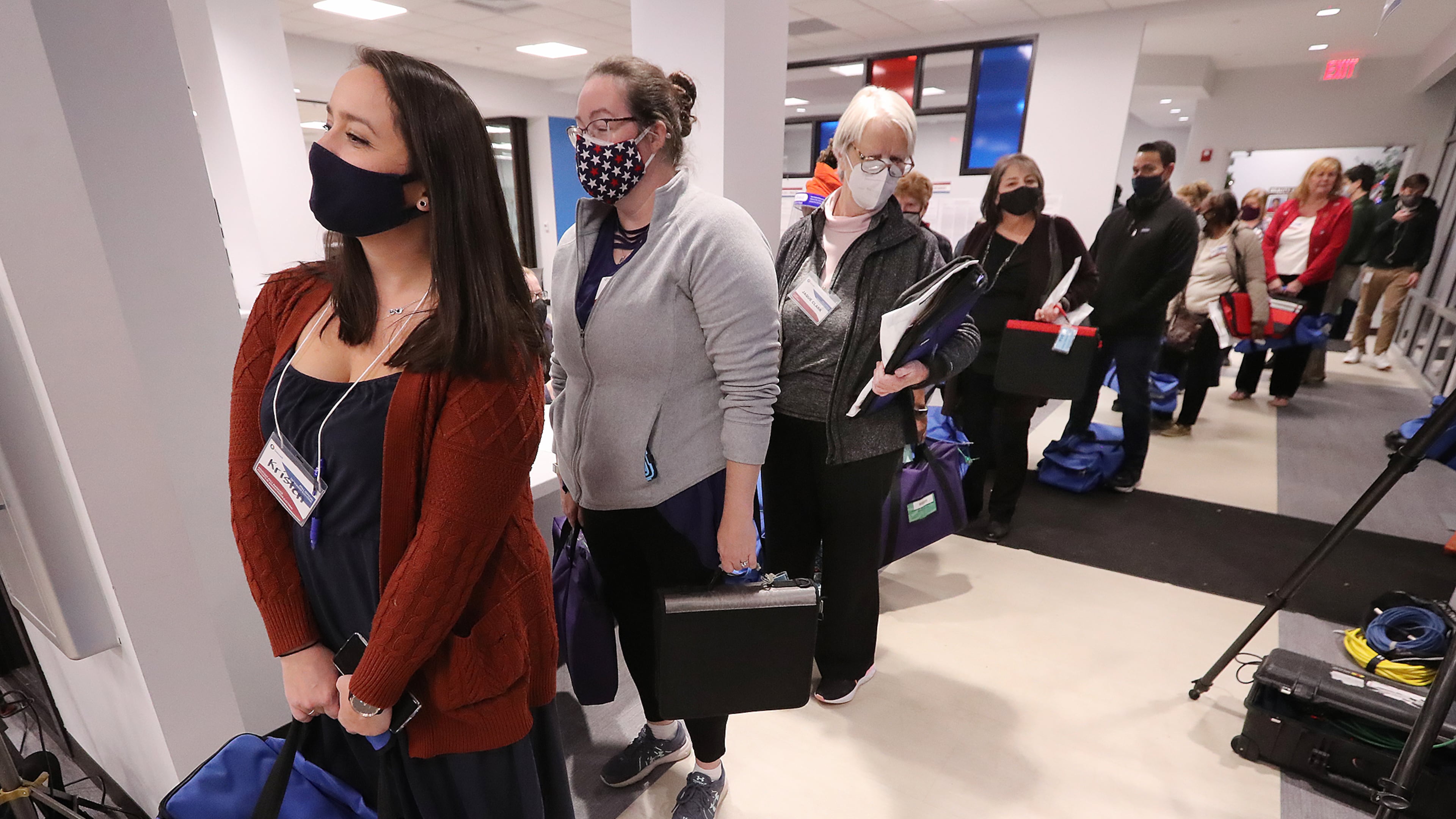Georgia bill would end long runoffs and free-for-all special elections

Republican Georgia legislators are pursuing an overhaul of primary and runoff election rules — changes that might have prevented Democrats from winning U.S. Senate races if they had been in effect last year.
Runoffs would be held four weeks after an initial election, cutting short the state’s current nine-week wait.
Military and overseas voters would use instant-runoff ballots, in which they would pick their second-choice candidates upfront, rather than having to vote again in a runoff.
And special elections would be preceded by partisan primary elections, eliminating the kind of 20-candidate contests that included Republican Kelly Loeffler and Democrat Raphael Warnock in November.
Taken together, these proposals would make it more likely that the leading candidate in general elections would prevail in runoffs.
Providing the facts and context that help readers understand the current debate over voting laws is a priority for The Atlanta Journal-Constitution. For a better understanding of the issues driving Legislative action, click on these links.
During the November election, Republican incumbent David Perdue held an edge of 1.8 percentage points over Democrat Jon Ossoff but fell short of the majority needed to avoid a runoff. Libertarian Shane Hazel received 2.3% of the vote. Then in the January runoff, Ossoff defeated Perdue by 1.2 percentage points.
The new voting methods for runoffs and special elections are included within a 94-page measure, Senate Bill 202, that could receive a committee vote as soon as Monday. The far-reaching legislation also would require more ID for absentee voting, set earlier absentee ballot request deadlines, limit drop boxes and disqualify provisional ballots cast in the wrong precinct.
Georgia is the only state in the nation that mandates runoffs after general elections, which led to the U.S. Senate runoffs on Jan. 5. State law requires that candidates receive a majority of votes to win. Most other states declare a winner based on whichever candidate earned the most votes on election night, even if they fall short of the 50% mark.
Democrats won the runoffs in large part because their voters returned to the polls at higher rates than Republican voters. Turnout dropped from 5 million in the general election to 4.5 million in the runoffs.
State Rep. Wes Cantrell, a Republican from Woodstock, said Georgia voters should be able to get results more quickly, without suffering through endless holiday season attack ads.
“The average voter hates it. They want it to be over with. Let’s do it and get it done,” Cantrell said. “A runoff creates a false majority. It’s unrealistic to expect people to keep filling out a ballot.”
Before this year, Republicans had won every statewide runoff since 1992, when Republican Paul Coverdell defeated Democratic U.S. Sen. Wyche Fowler.
Cantrell’s proposals would allow Georgia to hold runoffs closer to general elections by instituting instant-runoff voting for overseas and military voters.
A federal judge’s 2013 ruling found that Georgia didn’t give Americans living abroad enough time to mail their ballots, resulting in the current nine-week delay before runoffs. Through instant-runoff voting, those voters would submit their runoff choices at the same time that they return their ballots for the general election, allowing Georgia to hold in-person runoffs sooner.
Under instant-runoff voting, overseas and military voters would rank their first, second, third and consecutive choices in each multicandidate race. If a runoff is necessary, votes for the highest-ranked remaining candidates would then be tallied.
State Sen. Sally Harrell, a Democrat from Atlanta, said legislators should be careful before implementing instant-runoff voting and a shorter runoff period.
“The devil is in the details with instant-runoff voting because of ballot complexity. It could become confusing to the voter,” Harrell said. “I don’t think we’d be here discussing it if the outcome had been different” in the Senate runoffs.
Five other states already allow instant-runoff voting for military and overseas voters: Alabama, Arkansas, Louisiana, Mississippi and South Carolina.
If instant-runoff voting is successful with those voters, Cantrell said it could be expanded to all Georgia voters, eliminating the need for runoffs entirely.
A four-week turnaround between general elections and runoffs would shorten the early voting period to just a few days because of the time it would take to certify the initial election and create runoff ballots. In addition, the voter registration deadline for any runoff would occur one day before the general election day.
Besides runoffs, SB 202 would also add primaries for special elections that occur when the governor appoints someone to fill a vacant seat, as he did in December 2019 when he named Loeffler to replace retiring U.S. Sen. Johnny Isakson.
Instead of a 20-candidate special election, Republican and Democratic candidates would be separated into special primary elections. Then, each party’s winning candidate would compete against each other instead of facing such a large field that leads to runoffs when no candidate wins a majority of votes cast.
State legislators are continuing to debate and amend bills, and final votes are quickly approaching before this year’s legislative session ends March 31.
Proposed changes to runoffs and special elections
- Runoffs would be held four weeks after general elections instead of nine
- Overseas and military voters would use instant-runoff ballots to rank their choices
- Partisan primary elections would precede special elections
Source: Senate Bill 202



